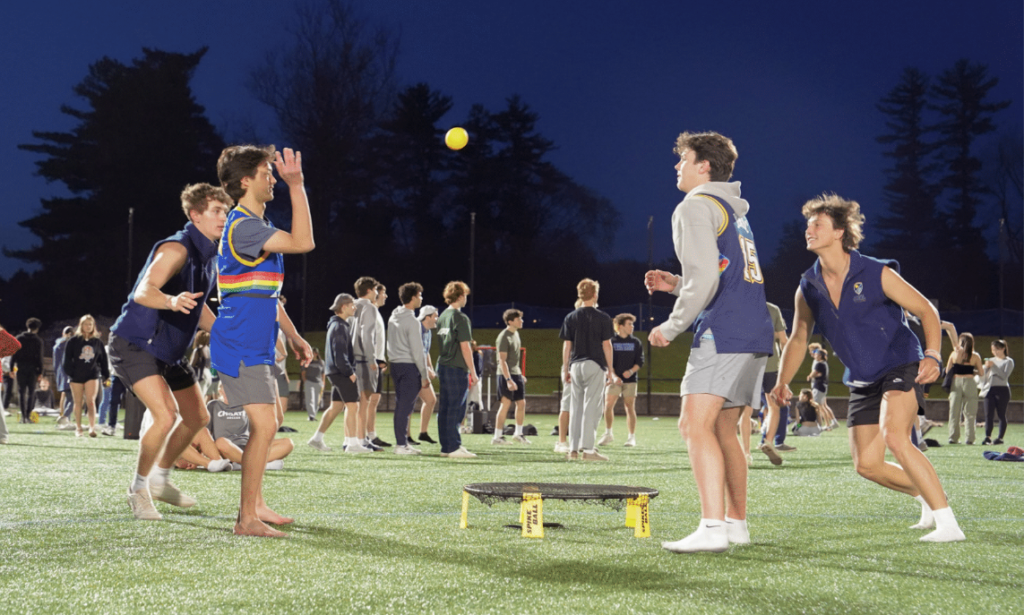By Zahabiya Khokha ’27
The average Choate student wakes up at around 8 a.m. and walks straight to class, maybe stopping by Lanphier Cafe for a quick coffee or the dining hall for a toasted bagel. Now, imagine waking up at 4 a.m. to eat breakfast, participating in a full day of classes and almost two hours of strenuous sports practice, and finally, ending the day with a couple of hours of homework, all while on an empty stomach. This is the daily experience of many Muslim student-athletes at Choate. During Ramadan, the fasting period lasted around 14 hours, from suhoor — the meal before fasting — starting at around 5 a.m., to maghrib — the time to break-fast —, at around 7 p.m. Despite numerous challenges, student-athletes at Choate persevered in balancing their rigorous sports schedules with their religious duties.
One of the core beliefs of Ramadan is to appreciate the opportunities one is given. “The whole point of this is to gain a better understanding and appreciation for what you have and understand what your life could be like if you weren’t as privileged as you are,” Girls’ Varsity Water Polo player Zainab Khokha ’24 said. With the discomforting effects of dehydration and low energy, Khokha pushed herself to attend practices regularly and stayed disciplined from making exceptions too frequently. “I would like to maintain my regular practices during Ramadan, just because if I let myself get out of everything, it would defeat the purpose of Ramadan,” she said.
Before each game, Boys’ Varsity Lacrosse player Tariq El Mammann ’24 reflected on his faith and the role that fasting plays in his religion. “But for my pregame routine, I find myself more in tune spiritually and in a calmer state of mind than [when I’m] not fasting because it’s at the forefront of my mind, combined with that fight-or-flight mentality and that adrenaline that kicks in,” El Mammann said.
Boys’ Varsity Volleyball player Azhar Sahadulla ’25 used fasting to self-reflect and test his stamina. He said, “I think fasting itself is a big discipline, especially for 30 days straight. It’s something you can lose your mind over.” Sahadulla found certain strategies helpful in tackling fasting, such as thinking of the bigger picture. “I focused on the whole world a lot. I think that that’s helped me.”
Muslim student-athletes were faced with challenges when fasting, such as low energy and dehydration. El Mammann said, “I’d say the biggest hardship is thirst. Of course, there is hunger and the fatigue that builds up throughout the day. But that feeling of being thirsty in the middle of a game is definitely something that I struggle with and must get through.”
On some days, the student-athletes found the challenges fairly overwhelming for their well-being. Sahadulla recounted one of his more challenging fasting days, during which a lengthy practice session and heavy homework load compelled him to rely on his optimistic outlook. “Sometimes you can’t really control how much you get, or when you have practices, stuff like that. I do feel like it is quite challenging,” Sahadulla said.
Throughout Ramadan, Muslim student-athletes fulfilled their religious duties despite the myriad challenges. Honing discipline and stamina, they took advantage of their holy month to create positive growth, improving themselves mentally and spiritually. “In terms of my character, I think I’ve grown a lot. I think that struggle I go through every day for 30 days makes me much better,” El Mammann said.



